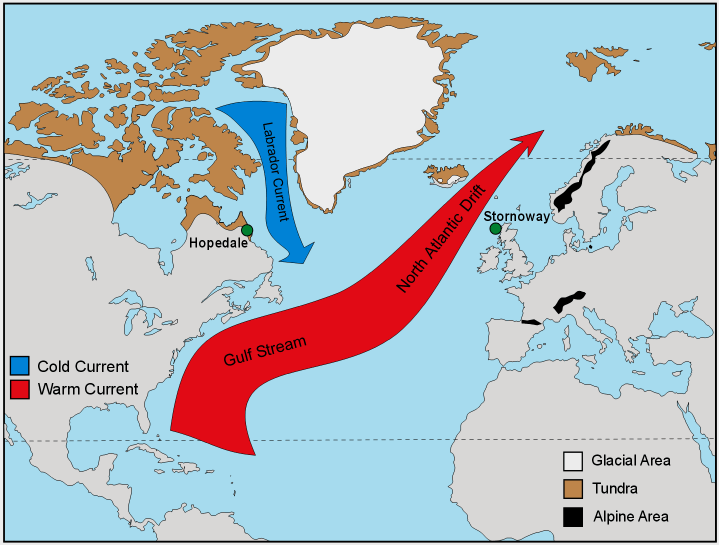The Gulf Stream is the weakest it’s been in the last 1,000 years. And as glacier melt in the Arctic continues to accelerate, the foot of the Atlantic’s most powerful ocean current keeps pressing harder and harder on the brake pedal.
A team of researchers recently analyzed an exhaustive catalog of geologic samples — including ice cores, tree rings and coral, as well as ocean and lake sediments — dating back to the year 900. Using sea-surface and atmospheric temperature data derived from the samples, scientists were able to plot a history of ocean current behavior.
The findings suggest the current slowdown is not only the most dramatic in recorded history, but also well outside the norm — enough to suggest it is not part of natural fluctuation.
“There is more than a 99 per cent probability that this slowdown is unique over the period we looked at since 900 AD,” Stefan Rahmstorf, study author and researcher at Germany’s Potsdam Institute for Climate Impact Research, told The Independent. “We conclude that the slowdown many have described is in fact already underway and it is outside of any natural variation.”
Researchers believe the Gulf Stream is being influenced by changes in water densities brought on by the influx of fresh water from melting glaciers. Differences in density and temperature, as well as the surface winds and weather patterns, drive the powerful flow of water known as the Gulf Stream, which pushes warm surface water northward and pulls deep cold water southward.

